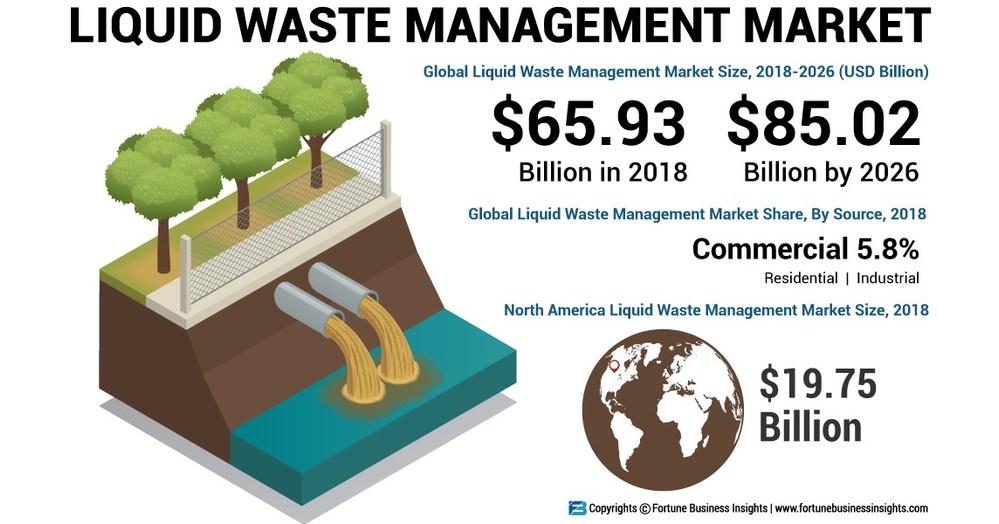Reclaim Waste Things To Know Before You Buy
Reclaim Waste Things To Know Before You Buy
Blog Article
The Only Guide to Reclaim Waste
Table of ContentsWhat Does Reclaim Waste Do?The Ultimate Guide To Reclaim WasteThe smart Trick of Reclaim Waste That Nobody is Talking AboutReclaim Waste for DummiesThe Greatest Guide To Reclaim Waste
Residential sewer waste refers to the waste and items from a residential septic container. The proper monitoring and disposal of domestic sewage waste call for fluid waste to be transferred to a sewage therapy plant where the correct techniques and tools are used to cleanse and dispose of waste.
Business waste usually consists of possible risks, such as flammable products or a blend of liquid and solid waste products, and requires a much more sophisticated and thorough disposal process. The disposal of commercial waste normally entails the purification of waste before transport to ensure risk-free and appropriate disposal. Hazardous waste is created from results and overflow of industrial processes and manufacturing.
This sort of waste can not utilize the very same sewage management transport or processes as septic or commercial fluids. The commercial waste administration procedure needs the assessment and screening of liquid waste prior to it undergoes the disposal procedure (industrial wastewater treatment). Drainage waste is the fluid waste that originates from overflow and excess stormwater in extremely booming locations or cities
Drainage waste can cause contamination and flooding otherwise managed correctly. Find out more about drain cleansing and waste administration. Ensuring proper waste administration can avoid catastrophes and lower ecological injury. Both people in residential setups and specialists in commercial or manufacturing industries can benefit from comprehending the procedures and regulations of liquid waste monitoring.
Reclaim Waste Fundamentals Explained
Contact PROS Providers today to discover our waste administration and disposal services and the appropriate methods to care for the fluid waste you create.
(https://www.tumblr.com/reclaimwaste1/766851148823068673/at-reclaim-waste-were-a-national-solutions?source=share)Do you recognize what occurs to your water when you end, purge the commode or drain the washing maker? No? Well, it's worth knowing. This supposed 'wastewater' is not only a vital source however, after treatment, will certainly be released to our land, waterways or the ocean. Utilized water from bathrooms, showers, baths, cooking area sinks, washings and commercial processes is called wastewater.

water made use of to cool equipment or clean plant and tools). Stormwater, a form of wastewater, is runoff that moves from agricultural and metropolitan locations such as roof coverings, parks, gardens, roads, courses and rain gutters into stormwater drains pipes, after rain. Stormwater flows untreated directly to neighborhood creeks or rivers, eventually reaching the sea.
The Greatest Guide To Reclaim Waste
In Queensland, the majority of wastewater is dealt with at sewage treatment plants. Wastewater is delivered from residential or commercial websites via a system of sewage systems and pump terminals, referred to as sewerage reticulation, to a sewer therapy plant. Neighborhood federal governments develop, keep and run most sewer therapy plants. Operators are accredited under the Environmental Defense Act 1994 to release cured wastewater at an appropriate ecological criterion right into waterways.
The Division of Natural Resources advises city governments concerning handling, operating and preserving sewerage systems and therapy plants. In unsewered locations, city governments may call for owners to set up private or home sewage therapy systems to deal with domestic wastewater from toilets, kitchens, bathrooms and laundries. The Division of Natural Resources authorises using household systems when try this out they are confirmed to be efficient.
In some brand-new neighborhoods, therapy of some stormwater to eliminate litter, sand and gravel has started utilizing gross toxin traps. Wastewater therapy happens in 4 stages: Removes solid issue.
Wastewater after that flows right into big tanks where solids resolve and are eliminated as sludge. Grease and scum are skimmed from the surface. Utilizes small living microorganisms referred to as micro-organisms to damage down and eliminate remaining liquified wastes and fine fragments. Micro-organisms and wastes are integrated in the sludge. Removes nitrogen and phosphorus nutrients that might create algal flowers in our waterways and intimidate water life.
Not known Details About Reclaim Waste
Nutrient removal is not offered at all sewage treatment plants because it requires pricey specialised devices. Clear fluid effluent generated after treatment might still contain disease-causing micro-organisms - liquid waste removal.

Many wastewater streams right into the sewerage system. Under the Act, regional governments provide approvals and licences for ecologically relevant tasks (Ages) involving wastewater launches that might have a neighborhood effect.
Top Guidelines Of Reclaim Waste
Otherwise, samples are considered research laboratory analysis. Commonly many tests are needed to develop the degrees of each of the different contaminants such as oils, heavy steels and chemicals in water. Surveillance provides factual info regarding water top quality and can validate that permit conditions are being met. The information acquired with surveillance gives the basis for making water quality decisions.
Report this page